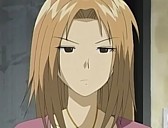Uncyclopedia:Pee Review/User:Hiatus Hernia/Saki
User:Hiatus Hernia/Saki[edit]
Well, after around 5 completely different revisions I guess I'm happiest with this one. I'd prefer someone who has never heard of Saki, but if you have/are a fan, that's great too. What I'm worried about is that this might be too subtle or unfunny. If somebody knows what to do about the templates, that would be good too. ~ 10:03, Apr 6, 2010
 |
Nachlader will review this article. |
 |
- Per user request. I'll have it done in 24 hours at least. -- 12:32, April 6, 2010 (UTC)
- I lost my original review due to a crash, but I remember some of it. I apologise if the secondary version isn't helpful enough. -- 15:41, April 7, 2010 (UTC)
| Humour: | 5 | I reappraised my mind of Saki's life and read one or two of his short stories, just to qualify this review that tiny bit more.
Let's get down to it. The article starts out seriously, which is the medium it carries throughout, a relatively sensible tactic I find, and gets down to the humour within the first proper sentence of the introductory paragraphs. "He was a most famous as a short story writer and an epigrammatist, and reminded people of Oscar Wilde." Ah, a Wilde reference. "“the only thing worse than having too many epigrams is not having enough epigrams”,". Another one. That's what immediately hits me regarding the humour in this article - it appears reliant on other gay, British writers. I'll hit upon this flaw later on in the review, but just remember that for every instance either Wilde of Coward are mentioned, I did not find it funny. The Early life and Colonial service hit upon good humour regarding the fascist imperialism of the time. The next section in London has this titbit: "He wrote witty editorial columns, which became very well-received in England due to their ability to not offend anyone’s decency". What decency? Yes, I know, decency, but which decency? The apparent decency of quaint British culture is evident, but when you mention decency, bring up an example of it. Imagine an earl who reads a column that has the word knickers in it, and the earl totally blows his top and shoots fifty foxes in the resulting tirade and spills his tea in the process. Talk about it more in the article, people lap it up. You could also mention the 1910s women's suffrage movement somehow, saying that Saki didn't care much for it, resulting biographers immediately leaping to the conclusion that he was gay. As a foreign correspondent remains loyal to the serious tone and proceeds with information about Saki's life. Remember that he witnessed bloody sunday, but I'm unsure how to link that. Towards the Great War does make mention once more of his stories (and his frequent protagonist, Clovis Sangrail), but bear in mind that any mention of WWI lightens the mind with excitement. With World War I it did for me anyway - I suggest you get down to the topic of his role in WWI very quickly and lengthily in this section. You could use Homosexuality in the British military as a leaning point. There isn't much information offered about his role in the war, save for his denial of a concession, his death and his last words. I'd suggest you spin a wild tale concerning his army career and his homosexuality in the same section, I'm sure it's achievable. The Themes in Sakian literature section also misses some potential and has also has a lot of wording worthy of being cropped. "Saki liked animals, and would often contrast the hypocrisies of Edwardian high society with the straightforwardness of nature." is a good opportunity: pretend you're a very harsh critic - pretend that he's totally absurd about his beliefs concerning modern life and nature, compare them entirely. Talk to me if you want a better idea of that tactic. Remember not to get too deep with his themes, again, not everyone will be willing to do as much research as I have done on Saki in the past few hours. And finally Legacy. Again, it's full of Wildean and Coward references. "The repression that fueled his comedy became the hallmark of British humour for years to come." in fact that hallmark is something I associate with others, but if it was intended as a joke then it obviously went above me - the article is far too serious to intend it that way. However: "Many scholars express regret that the great humourist did not choose to end his life with an epigram, which was usually the convention, for instance Oscar Wilde ended his life while showcasing his taste for interior design, with “These curtains are killing me, one of us has got to go.” Nevertheless, Saki’s last words, the aforementioned “Put that bloody cigarette out!”, was as witty as it could be under the circumstances." is a good way of referring to Wilde. It's a passing reference and contains a comparison that doesn't involve literature, poetry or plays. It's certainly a harsh outlook, but you did ask me of all people to do his first PEE review in well over a year. I'm abstaining from VFH frequently (or not even voting at all), I've raised my own standards somehow. I am very warming to the idea of this subject being the next hi-brow humour article though. |
| Concept: | 7 | The idea of the article feels original, the execution just isn't. However, back to the former point: the idea of an article about Saki feels fresh because contemporaries from the same circle of life already have their articles on this site, Saki offers a new opportunity.
However, I believe it's the constant references to Wilde and Coward that distracts me slightly. It's like trying to review a GTA-clone videogame by simply saying "Well, just like in GTA you can run around freely and like in GTA you can take cars and everything", it's somewhat insulting to the apparent fresh space this character can give the author. Not that I think everyone will instantly warm up to the familiar face of Saki, it's just that confirming that he was a homosexual writer from Britain in the same sentence as fleeting mentions of Wilde tends to bring out the worst of impressions - an over-impression perhaps. You see, when someone mentions a gay writer from the British isles, it is Oscar Wilde or Noel Coward that I think of instantly, no help needed. Of course cropping out these parts of the article means taking a chunk of the material from the article away, but believe me, granting the article some independence will enable exclusive humour to arise. For example, lets look at some of his short stories. They are deemed well enough by Wikipedia to have it's own section of the article, each with it's own summary of the proceedings. My feeling that a similar tool of humour used prominently throughout Aesop's Fables could be replicated here. For example, here is my take on Munroe's The Unrest-Cure:
Okay, maybe not as long as that, but maybe it could give you some idea what to replace the brunt of the Wilde references with. For me, the humour conveyed in the above story is the usage of writing style and references to more modern lifestyles. If you fashion a <ref> tags link to the short stories that you cover, you can counter any "but i don't understand the jooooke" excuse from anyone. Saki's stories cover the extremity of modern life attempting to replace nature. I notice you make light of this in some parts of the article, but the serious tone is taken... a bit too seriously. For example:
Just seems to me as too serious. Hi-brow certainly, but it's too much truth and not enough humour. I can see the point in writing an article that is 100% based on real facts, so long as it can be worded humorously, but this article reads like it's trying to be 110% based on real facts. If a paragraph is written seriously, then the ending is very, very ripe for a punchline, one of the tactics I use in articles. Let's look at that paragraph above again:
Not exactly great either, but at least it doesn't look like it's trying to bore the reader. I can see how this topic is hard to write about, that's why I'm relying on the short story material up above for funnies suggestions in this review. |
| Prose and formatting: | 7 | Not problematic as far as I can tell, the length is also good and each section boasts a sufficient word count. You've forced upon yourself some strict requirements of the article, a very welcome hint that you are trying your hardest on this site, which to be fair, does need the author's full attention to reach the level humour an article deserves.
Bear in mind that this is still a fairly long article for a person whose nature needs identifying for the reader. If you crop some of the most serious parts of the article and leave mostly jokes on the essential bits of knowledge, I think that would serve the article well. |
| Images: | 6 | Considering the subject has limited image appeal, this is easily forgiveable. Maybe some images could change places (for example, the lead image should be the same image as the one that leads the Wikipedia article, where Saki is facing the reader).
Of course I can also understand why all the images rely on captions for licensing of their Uncyc presence. Saki liked to compare Edwardian standards to that of wildlife. You could try asking someone RadicalX's Corner (you'll get a response at least within a few days) for an image that crosses monkeys in posh attire in sepia filter - something like that anyway. Trying taking some statements related to the subject literally and picture it, then asking someone else to do it. Also, watch how closely your captions mimic the body of text along side it. "Really sad pieces about wildlife on the battlefield", is the one culprit. |
| Miscellaneous: | 5 | Averaging or something. |
| Final Score: | 30 | It's not eternally poor, and neither is your excellent understanding of Uncyc humour, it just needs to clear away a few weeds and it's already well on the way. VFH? Possibly, if you engineer this article to reach the hi-brow standards, of which have prospered on VFH recently, some users may even be positive towards Saki. I know I am, I'm going to look for an anthology of his or something to put in my bookcase.
Of course, you always able to contact me on my userpage. I extend any help I have already offered. |
| Reviewer: | -- 15:41, April 7, 2010 (UTC) | |